Read our customer case studies to discover how our customers thrive in their homes and communities.

Read our customer case studies to discover how our customers thrive in their homes and communities.
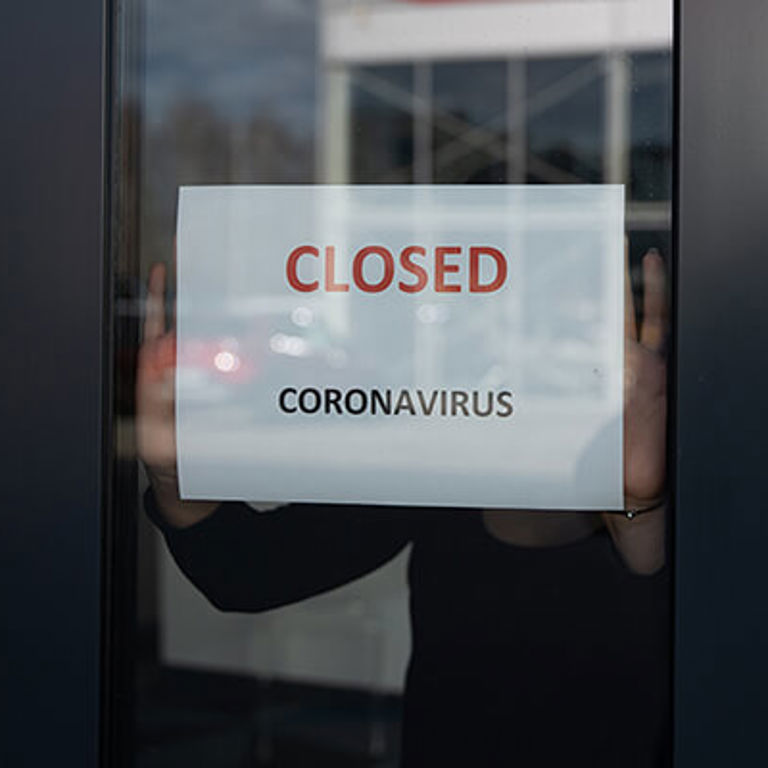
John* had been on furlough for some months before being made redundant in October 2020 as a result of the pandemic’s impact on the economy and his company in particular. Whilst on furlough, a family member passed away and John* had to use the little savings he had to pay for the funeral, leaving him with no money until his Universal Credit claim was assessed.
As a result, he fell behind with his rent payments. While speaking to a member of the income team about his rent arrears, he agreed to a referral to the Better Days programme for some help to get back on track. The referral was picked up by Manjit in the triage team, who called John* to find out more about his situation and discuss the support we could offer to him as an Orbit customer. She quickly learned that he had never claimed benefits before and was unsure how much he would be entitled to or how to claim, especially as he needed help to cover his rent payments. He was also worried he may be affected by the bedroom tax and didn’t know how he could continue to pay off other debts and cover his bills whilst on furlough. Manjit explained that we could refer him to our money advice partner for help with his debts and connect him with a Tenancy Job Coach for help claiming Universal Credit and searching for other work.
Margaret, a Tenancy Job Coach based in the Midlands, carried out a benefits check with John* and provided him with information about how much Universal Credit he would receive. She explained that he would need to provide information about his rent, and that when his UC payment came in, he would need to pay the rent portion to us. Margaret also explained how to make a claim for a discretionary housing payment to top up the housing element of his UC, as this would otherwise not cover his full rent amount.
Once this was sorted, the conversation turned to job searching and finding employment. John* was keen to get back into work as soon as possible, as he wanted to earn his own money rather than being reliant on benefits and missed the routine and purpose working had given him for many years. Margaret coached John* on how to update his CV and customise this for the different jobs he was applying for. She also completed bite sized sessions with him on job searching techniques and interview skills, to help him build his confidence.
John* was looking for jobs as a Forklift Driver, something he had done before but needed refresher training on to enable him to work in this field again. He couldn’t afford to pay for the training himself, so Margaret applied for an Orbit grant to pay for this for him. Together, they found a suitable training course with a local company and a place for John* was booked and paid for by Orbit. John* attended and successfully passed the course, obtaining the two certificates he needed to be able to find work as a Forklift Driver.
John* added this information to his CV and quickly set about contacting recruitment agencies and employers to let them know that he was available to start work. Within a matter of weeks, he had secured a new full-time job and was over £900 better off per month than on benefits. With our support, he is now able to clear his arrears, avoid any legal action and sustain his tenancy. He is also now less stressed and much happier, as he has a working routine again.
* Name has been changed
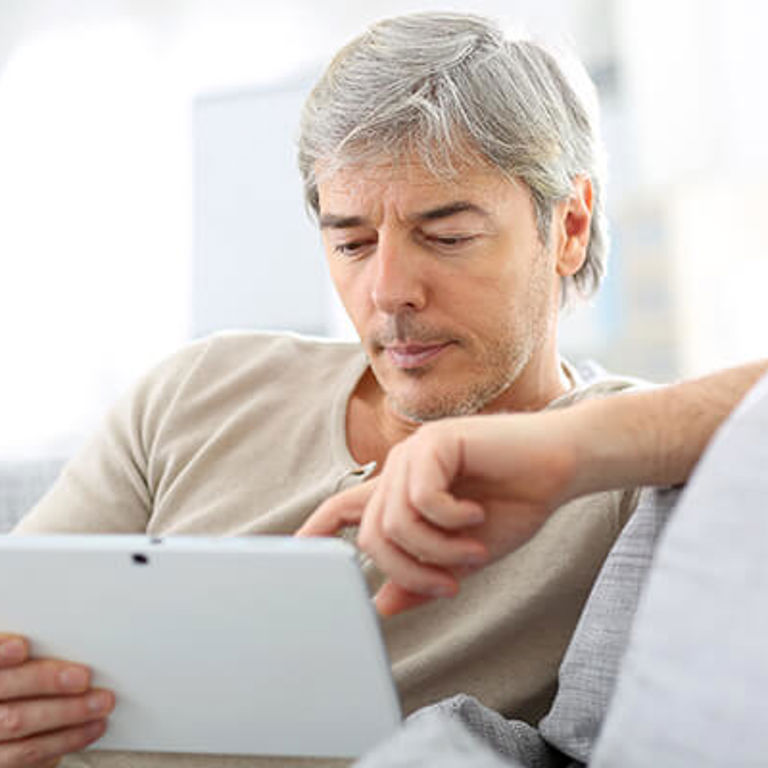
Steven* had been successful in applying for a tablet via the Better Days Super Surfing Grant. He had been without a digital device for some time as his marriage had ended, and as the tablet he previously used belonged to his ex-partner he no longer had access to one.
Steven* joined our free digital skills support 1-2-1 sessions with our expert partners, We Are Digital. Steven wanted to improve his digital skills and initially learn how to write emails correctly. The sessions enabled Steven to keep in touch with his children, who live in different countries, via video chat. He now feels more digitally enabled and uses online shopping, reducing the need for him to leave the house.
Steven* experiences poor mental health, and believes that being online will enhance his wellbeing, as he can listen to his favourite songs on YouTube and take part in other online activities that he enjoys instead of watching TV.
Steven* has direct debits set up to manage his bills, and with this new device and his new digital skills he can check his bills online and manage his outgoings. He also uses the tablet to view and make changes to his Universal Credit journal. Steven* was very impressed that the We Are Digital sessions were free and helped him learn things from a basic level.
* Name has been changed
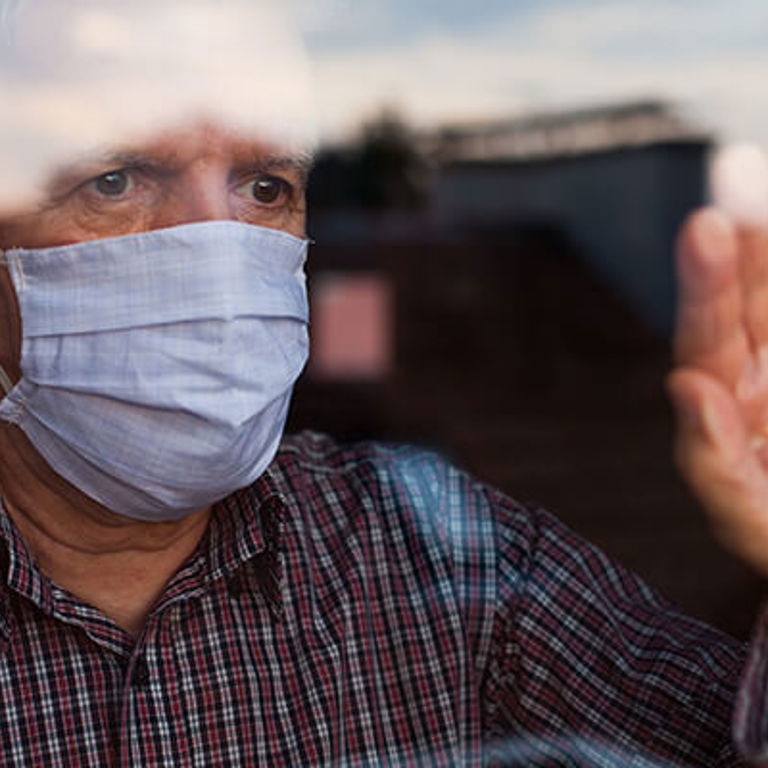
One of our Triage Officers referred a customer to our Breathing Space programme, as he had explained that both he and his partner had been shielding since the start of the pandemic.
Not being able to leave the house had negatively affected his wellbeing and disrupted his usual routine. He was also having financial issues due to changes to his benefits, and he had been struggling to get on with his neighbours.
We were able to offer him weekly telephone calls, and he used these as a way to offload the difficulties he was facing each week. Coping strategies and ways to improve his wellbeing were discussed, and Breathing Space bridged the gap in support caused by delays to social services due to the pandemic. We signposted the customer to Citizen’s Advice for support with his financial issues, and supported him to contact the Council’s housing department to discuss the issues he was having with his neighbours.
During the final telephone support session, our customer said that he felt in a much better place. He had been able to spend more time comfortably in his garden, and felt he had more control over his wellbeing. He had appreciated being able to talk to someone whilst he had been feeling low.
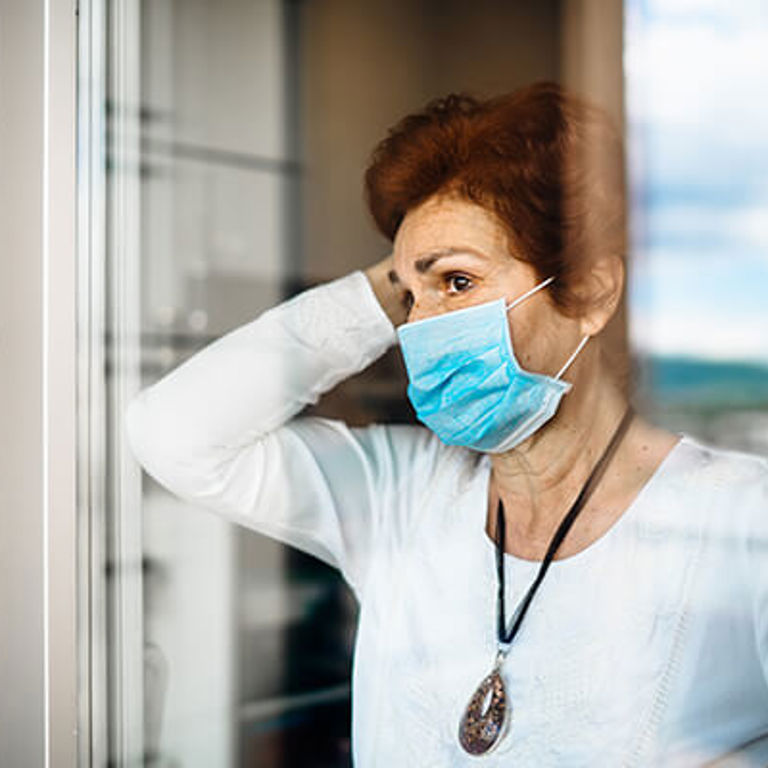
Our partners, Mind in Brighton and Hove, are delivering our Breathing Space programme in Hastings and Rother. They worked with one of our customers who was struggling with the impact that coronavirus was having on their anxiety levels.
This customer was supported over a number of weeks with their anxiety and stress, and in particular we were able to support them to go outside - they had become really scared and panicked about leaving the house. In normal circumstances, she struggled with going out on her own, but coronavirus had impacted her ability to go out at all.
We ensured that she had all the necessities that she needed, such as food and heating, and provided contact details for organisation who offered local support with shopping and other needs.
We talked through some coping strategies regarding feelings of panic and anxiety, and discussed the realistic fears that she had around coronavirus. With our support, she was able to talk to her daughter about how she was feeling, and this helped with her sense of isolation. They’re now able to talk things through on a regular basis.
We spent time reassuring her that what she was feeling was ok, checking in with her about her progress and day to day activities, and over time she started to feel better and her anxiety eased. One of our suggestions related to creativity – she started to complete mindful activities to ease her stress and give her a focus other than what was happening in the outside world.
We also referred her to Southdown Community Connectors, who are supporting her in the immediate term and will be able to support her in the longer term too, providing her with a buddy to go out and about with. She is also linked with Hastings Community Hub, if she needs support to get food shopping, and is now in regular contact with her GP if she feels that she needs extra support with her anxiety.
This is an example of the effect that coronavirus has had on people’s anxiety levels, and although there have been periods of time when coronavirus restrictions have been lifted, the ongoing stress and anxiety still has an impact on people’s mental health.
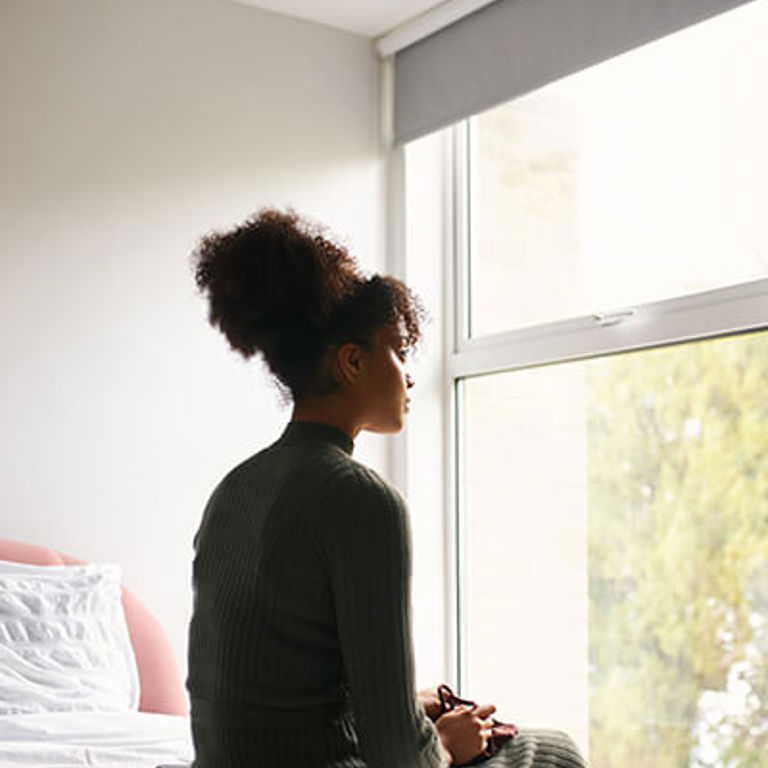
One of our customers was struggling to cope with the effects of the coronavirus pandemic and had suffered a self-harm relapse, along with feeling suicidal. After a difficult start in life, she struggles with poor mental health and stresses and strains in her relationship.
After being referred to Mind by the Community Mental Health Team, she started accessing support in the community, attending a regular group session at Mind, joining a drama group for people with mental health issues and attending her local church, where she felt people were accepting and kind. When services were restricted due to the pandemic, she ‘felt that all [her] hard work was coming undone’, and she was finding it more difficult to leave her flat, even to go to the corner shop.
She was keen to know how to manage her panic attacks, so we looked at coping strategies she could learn and then practice whenever she needed them. She picked up the techniques with ease and noted that they were really making a difference. Although she had a support network of friends, she felt that the group had become very negative during lockdown, and individuals seemed to be encouraging self-harm and risk-taking behaviour.
Over the course of the Breathing Space programme, she had a couple of relapses, noticing the urge to self-harm had become stronger when things became strained with her husband. However, because of the support we provided, she is able to identify her triggers, and work on reducing stress levels using distraction techniques. She also keeps a gratitude journal and enjoys writing down what she is thankful for each day.
She taught a number of coping techniques to her friendship group and said that they had found them helpful, and at the end of the programme, she recognised her mental wellbeing had improved and that her feelings of social isolation had reduced.
“When I first talked to the Breathing Space team, I was struggling really badly with anxiety and depression and my panic attacks… they were so bad I was in and out of hospital. Now I am no longer having to go to hospital for my mental health and I am taking my medication properly and I have techniques to use. It’s not just my mental health - I am more inclined to take a shower or bath and I am eating better. I am even going to the shop and think I will go out more in the spring. You are always there to listen and give coping strategies, you know a lot about how to tackle anxiety.”